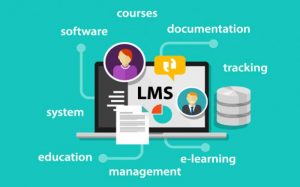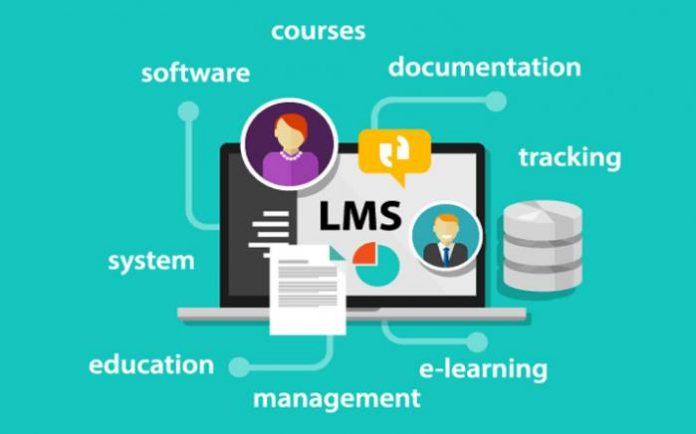The invention of Learning Management Systems was a blessing in disguise for the post-pandemic world. Had it not been for lms, the economy would have ceased to function, because post-covid, people are not ready to keep anything above their health. LMS lets employees and employers run the company by not compromising the health or the performance. Here’s how lms has helped all sectors.

Enterprise Training
Companies implement corporate learning management systems to enhance their training programmes and supplementary courses because they bring reliable functions to the table. Learning management systems are intended to aid in the creation of comprehensive corporate training experiences for employees. The majority of learning management system software includes features that allow for the customization of both on-site and online courses.
They also allow instructors and facilitators to design their own eLearning courses for their trainees, employees, partners, or dealers. To top it all, learning through learning management system software can take place at any time and from any location, providing employees and trainees control over course completion and training progress.
There are numerous advantages to learning through your smartphone , and flexibility is just one of the many reasons why you should include mobile learning in your corporate learning and development strategy. According to the eLearning Industry study, 58% employees prefer self-paced learning, making LMS a hit for workplace training. Ask any employee what they look for in a job, and we’re sure they will say having as much freedom as possible.
Non-Profit Organisation
Non-profit organisations use learning management software as it provides an approachable and flexible experience for both administrators and students. They make use of a set of tools that aid in increasing learner engagement and managing certifications. Learnupon lms can also be extremely beneficial in the dissemination of information. Members of an association can share content with their peers and the industry in which they work.
They can also securely store and organise these files on the platform, and even charge a small fee for non-members to access the content. Non-profit organisations that have successfully used learning management software systems include associations that provide first aid training, social work courses, and health and safety training.
Educational Institutes
Learning management software serves as an online extension of the classroom for academic institutions. It can even go so far as to replace the classroom due to online classes and courses, with advanced features that allow instructors and students to meet and collaborate online.
Students can use an academic learning management software to ask their teachers questions or interact with other students on the course. It can also serve as a hub for teachers to post course materials and relevant assignments. Students, on the other hand, can use Learnupon LMS to consume training content, submit assignments, and take tests.
There is also an increasing number of teachers who are attempting to use technology in the classroom. According to a survey, 59.7% of its respondents were attempting to implement innovation strategies in their pedagogical method. Among these strategies, the purchase of learn upon LMS to facilitate remote learning, track student progress, and meet the increasing demand for online education was the most important one.
Health Care
Healthcare will be the next major industry to drive growth in the LMS market after the COVID-19 period. With a healthcare LMS integrated into the system, it is easier to provide the right kind of training to employees. Training also allows the management to easily track employees’ progress and assess their skills. Thus resulting in better healthcare services all around. Hosting courses on an LMS for healthcare and allowing employees to learn on their own time is more convenient than classroom training. This adaptable system will ensure high-quality medical education while also being cost-effective.
Human Resources
Learning management systems are ideal for hosting training programmes like onboarding courses for newly hired employees. Human resource departments can also monitor which employees are ready to be promoted in their line of work, thanks to its progress-tracking capabilities. As a matter of fact, these functions of various learning management system examples are expected to remain a part of organisations of any size or industry.
Hospitality
Workers in the hospitality industry always have to adhere to a plethora of regulations and compliance rules. When it comes to hospitality, there is no room for error, so the employees here always have to hit the ground running. LMS-based hospitality software is adaptable and also the quickest way to train seasonal recruits. The centralised systems are simple to update when the compliance regulations or company policy change. Once the pandemic is over, there will be a significant increase in interest in LMS for employee training.
Compliance
Working in the compliance sector is a tricky business. It necessitates a thorough understanding of critical legal aspects that apply to a business. These rules are generally accomplished by government agencies and independent organisations in a specific field and can be adapted at the local, national, or both levels. Companies’ compliance departments use learning management systems to keep track of compliance-related areas such as wellness training, worker safety, as well as product certification and clearance, to aid in adhering to these policies.
Learning management system has its benefits spread across sectors. We hope you have been able to identify how learnupon LMS will come to your advantage.











































